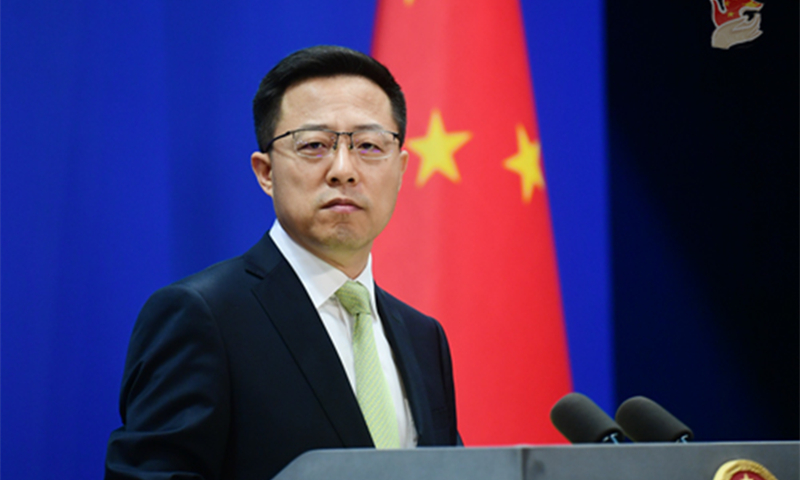
Chinese Foreign Ministry spokesperson Zhao Lijian
As toxic fluorine compounds dumped by the US military in Japan were detected once again in Yokosuka city of Kanagawa Prefecture and sparked concern among locals, Chinese Foreign Ministry spokesperson Zhao Lijian said on Thursday it reflects that saving the benefits of something for itself and leaving the environmental cost to others is US' standard practice.
Yokosuka Municipal Government of Kanagawa Prefecture in Japan announced recently that the amount of toxic fluorine compounds detected in drainage water from a US naval base there exceeded Japanese government-set limits.
Mayor of Yokosuka expressed concern saying that "It is truly regrettable. The outflow into the sea may be becoming the norm."
This is not the first time that US troops in Japan have dumped toxic substances. This again shows the world how much harm the US troops in Japan have caused to the local environment and people's lives, Zhao said at Thursday's media briefing.
In early May, toxic substances were found in the wastewater treatment plant at the US base, which exceeded the standard value. In early July, the US military conducted another sample survey, which showed a maximum of 97 nanograms of PFOS and 15 nanograms of PFOA were detected per liter, exceeding the provisional target values, media report said.
"Saving the benefits of something to itself and leaving the environmental cost to others is US' standard practice," Zhao condemned.
As the world's largest exporter of solid waste and a major consumer of plastic in per capita terms, the US has yet to ratify the Basel Convention on the Control of Transboundary Movement of Hazardous Wastes and Their Disposal and the US has long taken developing countries, whose handling capacity is still inadequate, as the final dumping site of plastic waste, Zhao said.
According to the report released by the nongovernmental organization Basel Action Network, US companies were still illegally exporting hazardous electronic waste to developing countries in 2020, Zhao said.
In the US, racial minorities including American Indians, African Americans and Latinos face serious environmental inequities. The US government has systematically used Indian reservations as toxic or nuclear waste dumps through the means of deception and coercion. As a result, the cancer incidence and fatality rates in the communities concerned are significantly higher than in other parts of the country, Zhao said.
Numerous studies have shown a higher percentage of African and Hispanic communities are exposed to air pollution, toxic waste sites, landfills and lead poisoning compared to white communities.
UN Special Rapporteur on contemporary forms of racism, racial discrimination, xenophobia and related intolerance said in a statement that environmental racism poses serious threats to the enjoyment of several human rights of African American residents, including the right to life, the right to health and the right to an adequate standard of living, Zhao said.
Zhao noted that environmental issues are humanity's shared challenge. They are issues for the global commons. As the most advanced developed country, the US needs to fulfill its obligations on global environmental governance in good faith, stop recklessly damaging other countries' environments and do something to protect racial minorities at home from environmental racism.
Global Times

